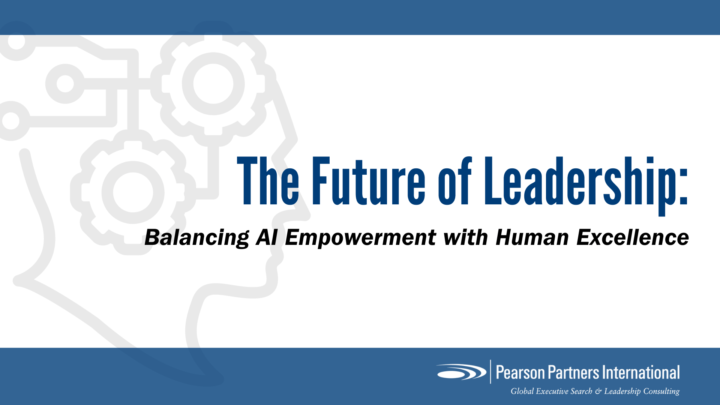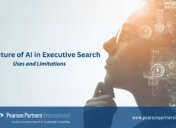The Future of Leadership: Balancing AI Empowerment with Human Excellence
Artificial intelligence has become an important part of business by automating tasks, analyzing data and enhancing decision-making. In an era where AI is transforming industries at an unprecedented pace, leaders must navigate how to adopt these powerful technologies without losing the human touch—the uniquely human skills that drive innovation, creativity and connection.
The future of leadership depends on finding a balance. Here are ten strategies to help leaders integrate AI while still empowering their people to excel:
- Balance AI with Human Excellence. AI excels at processing data and handling repetitive tasks, but it cannot replace human judgment, creativity or intuition. Leaders must focus on balancing roles where these skills are critical with AI to support rather than replace human input.
Identify and invest in roles where human qualities like judgment, empathy and strategic thinking are irreplaceable—such as customer relations, innovation and strategic planning.
- Focus on Emotional Intelligence (EQ). With AI handling routine tasks, emotional intelligence becomes a key differentiator. Human skills like listening, empathy and collaboration are crucial for building strong teams and lasting client relationships.
Encourage your organization’s uniquely human skills to ensure that AI complements rather than replaces human roles.
- Cultivate Critical and Creative Thinking. AI is a powerful tool, but it cannot replace human creativity, out-of-the-box problem-solving or innovation.
Encourage employees to think critically, challenge assumptions and propose innovative solutions. This culture of critical thinking will position your organization as a leader in your industry.
- Build Resilience Through Lifelong Learning. As AI quickly evolves, leaders and employees must commit to continuous learning to stay competitive. It is crucial to embrace new technologies and capabilities while honing the human skills that AI cannot replicate.
Implement programs that develop competencies in leadership, negotiation and decision-making—areas where AI still falls short.
- Acknowledge Concerns and Build Trust. Adopting AI in the workplace can leave some employees feeling anxious or threatened. Some may worry that AI will outpace their skills or even replace their jobs.
Recognize that embracing AI may cause uncertainty among employees. By addressing these feelings openly, you can build trust and demonstrate commitment to their growth. Encourage open communication and offer development opportunities to help alleviate fears—showing that AI will empower workers, not displace them.
- Champion Human-Centric Leadership. In an AI-integrated world, traditional command-and-control leadership is outdated. Today’s leaders must become enablers of human excellence.
Create environments where people feel safe taking risks, innovating and learning from mistakes—areas in which AI lacks adaptability.
- Encourage Team Collaboration Over Isolation. AI may perform individual tasks efficiently, but breakthrough innovation often comes from team collaboration.
Foster teamwork across departments and encourage diverse perspectives. Leverage AI to support, not replace, the human element in collaboration.
- Empower Data-Driven Decision-Making. AI offers powerful insights through data analysis and task automation, but human oversight is essential to interpret the results. Reviewing and challenging AI output ensures that decisions remain informed and balanced.
Train your teams to interpret AI output critically and challenge assumptions to make informed decisions. Human supervision ensures that AI enhances decision-making rather than dictating it.
- Be Adaptable. As the integration of AI continues to reshape how we work, leadership styles must evolve as well.
Stay informed about emerging AI technologies and be willing to pivot strategies accordingly. Encourage a flexible mindset in your organization, where people see change as an opportunity for growth rather than a disruption.
- Prioritize the Ethical Use of AI. With AI’s power comes the responsibility to ensure its ethical use.
As AI becomes increasingly autonomous, ethical leadership will be more critical than ever. Align AI systems with your company’s values and prioritize transparency, fairness and accountability.
Conclusion
The adoption of AI offers significant advantages, but it also underscores the need for human-centered leadership. By championing both technological innovation and human ingenuity, you can lead your organization to thrive in an AI-empowered world.
Learn more in our recent AESC white paper, The Human Edge: Outsmarting AI in Executive Career Success, exploring the significant impact of AI on career trajectories, market trends and skill set evolution. |
Related Posts
- ← Fireside Chat on the U.S. and Mexico Presidential Elections
- 2024 Executive Mobility Report – Pearson Partners International & IIC Partners →

















